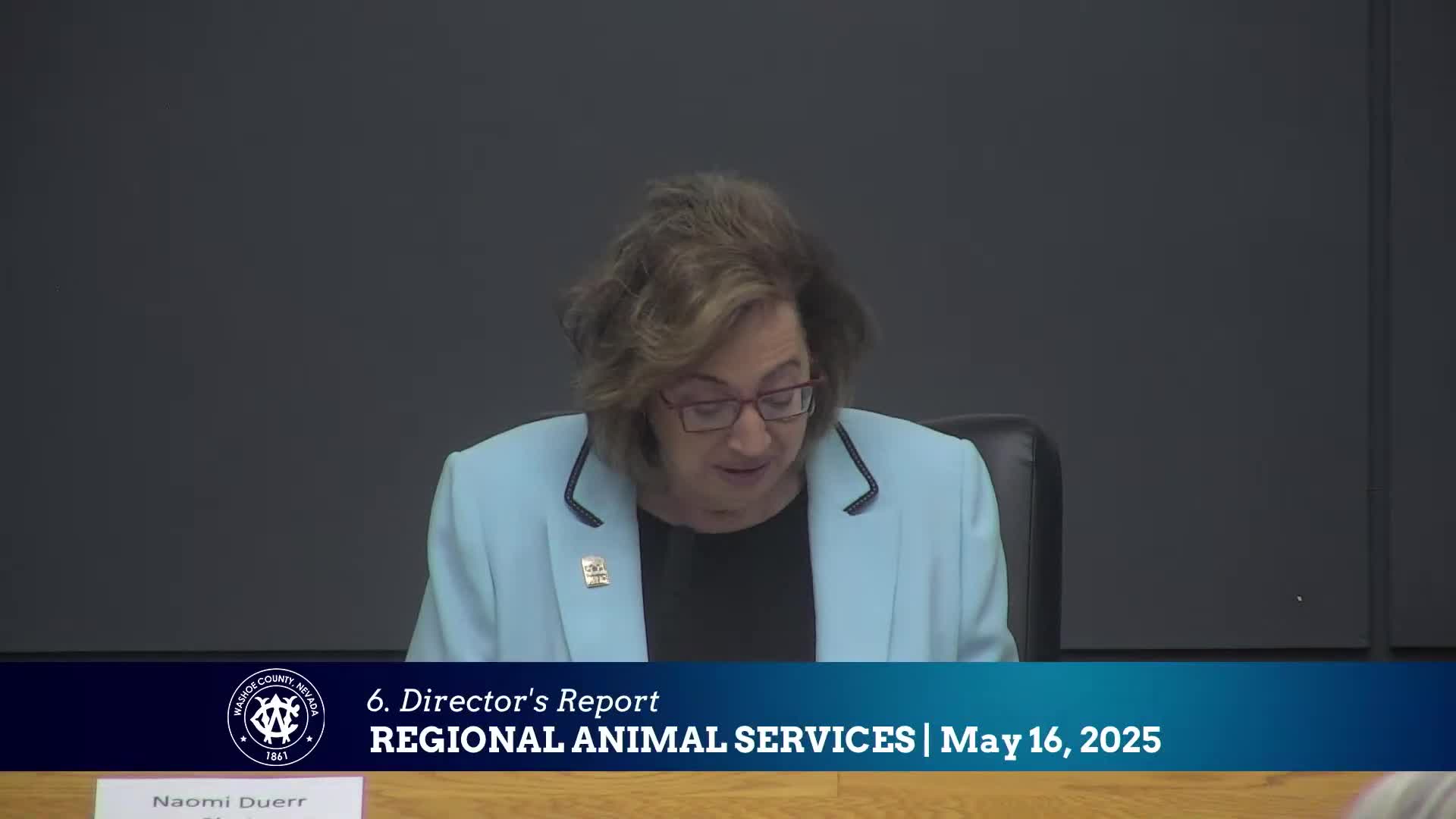Article not found
This article is no longer available. But don't worry—we've gathered other articles that discuss the same topic.
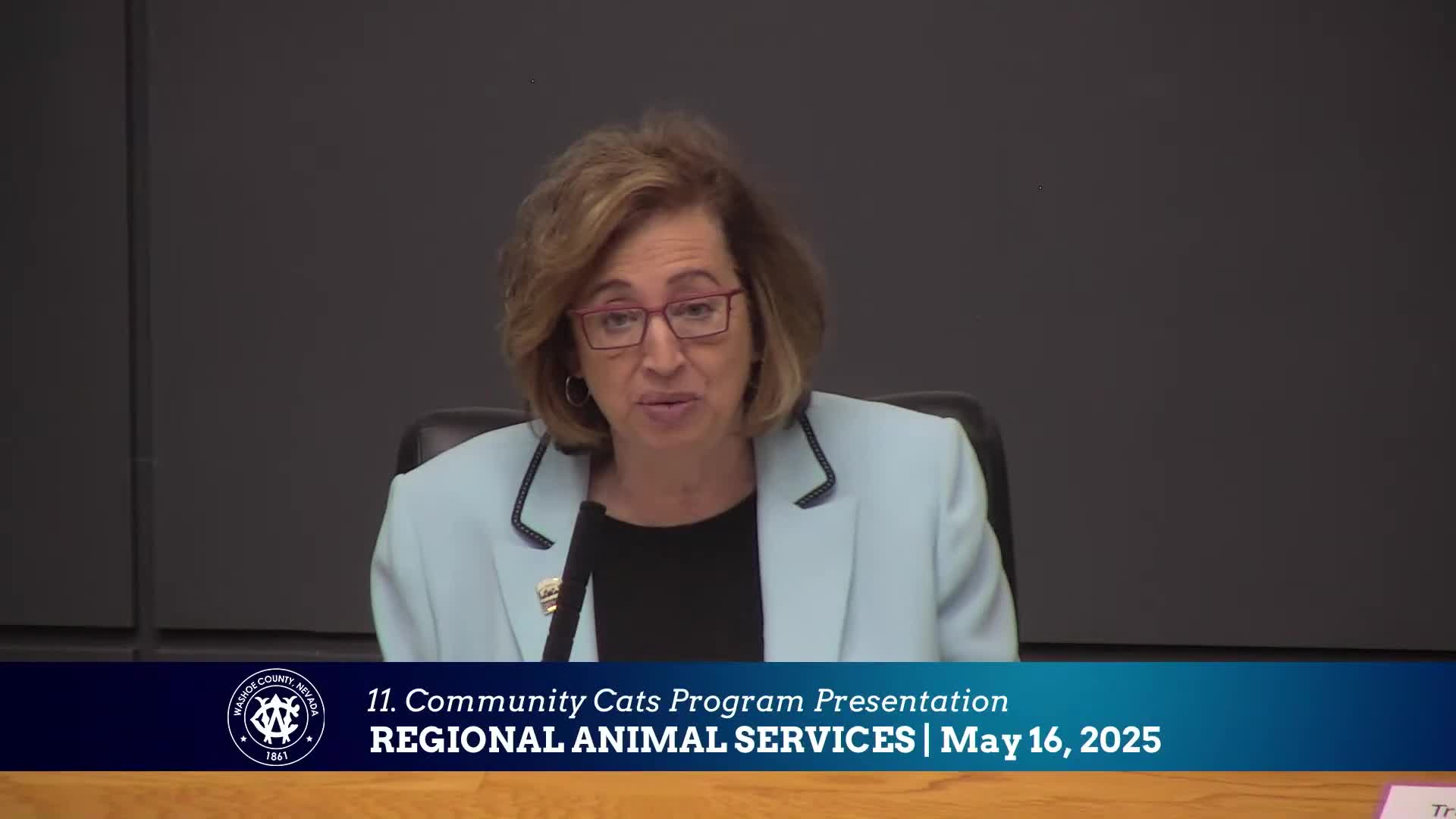
Community CATS reports surge in TNR work, urges unified data and targeted hot-spot mapping
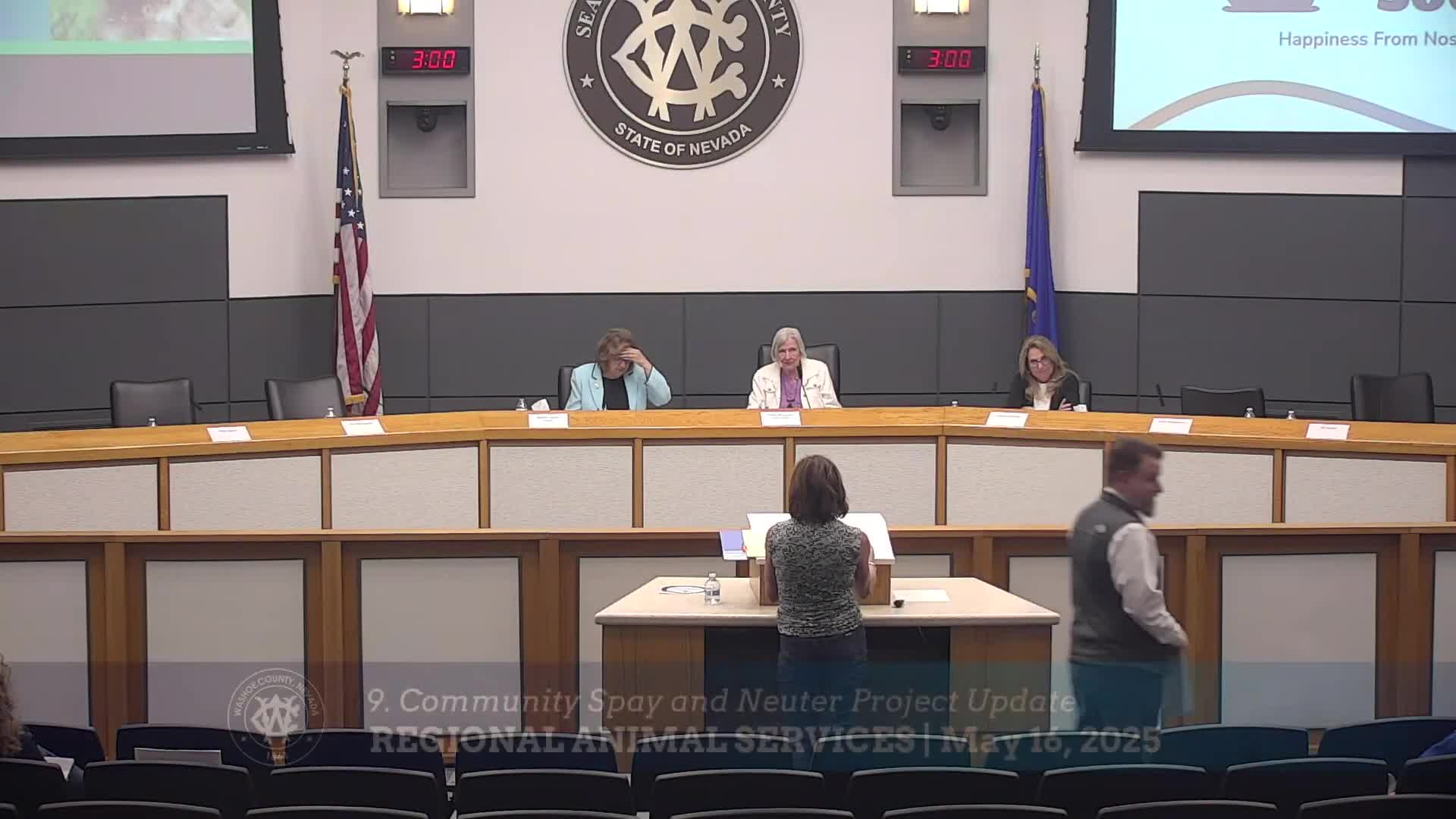
Options Veterinary Care reports ARPA-funded spay/neuter activity and free TNR work for Washoe County residents
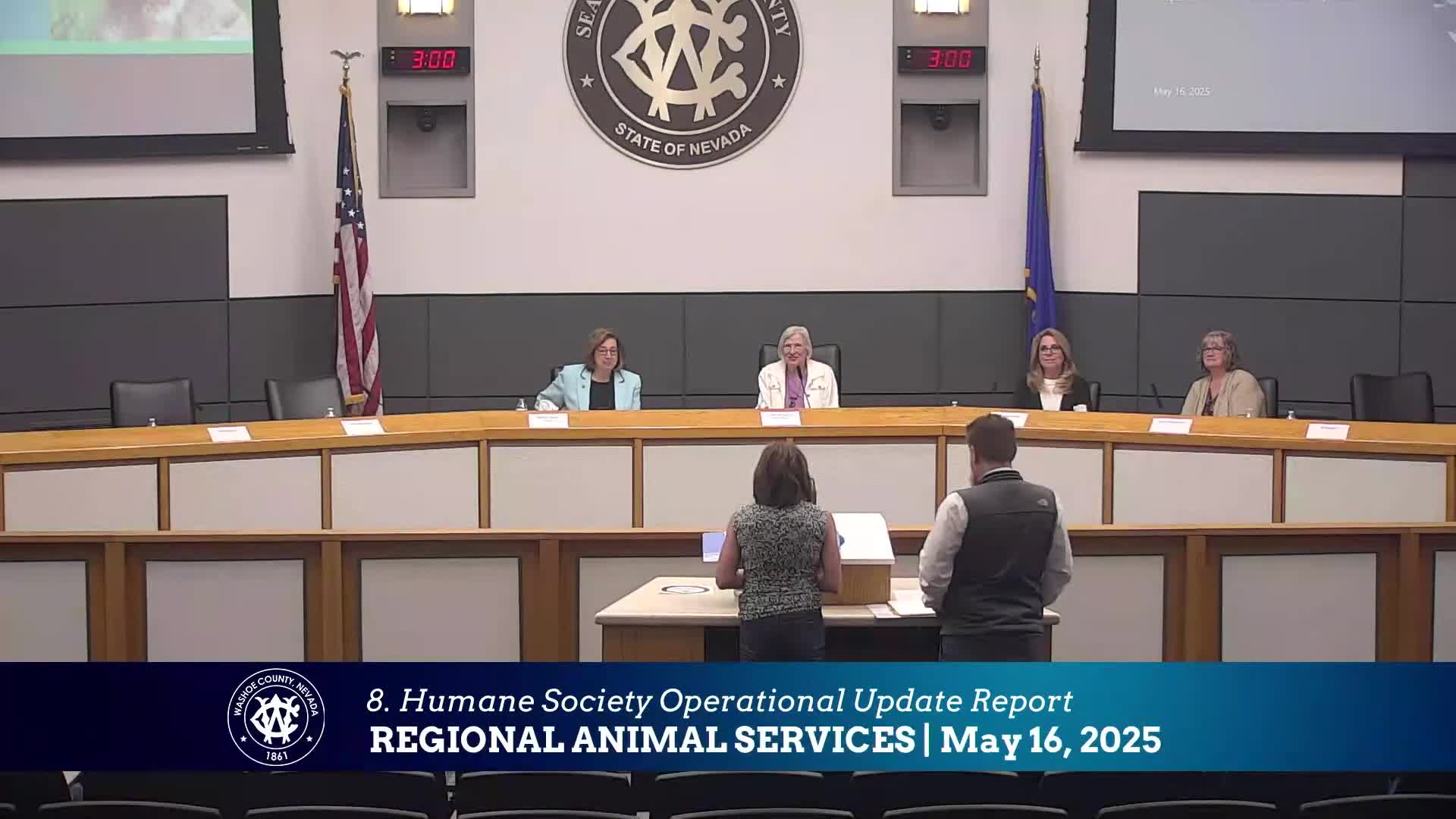
Nevada Humane Society reports rising owner surrenders and expands spay/neuter services under ARPA grant
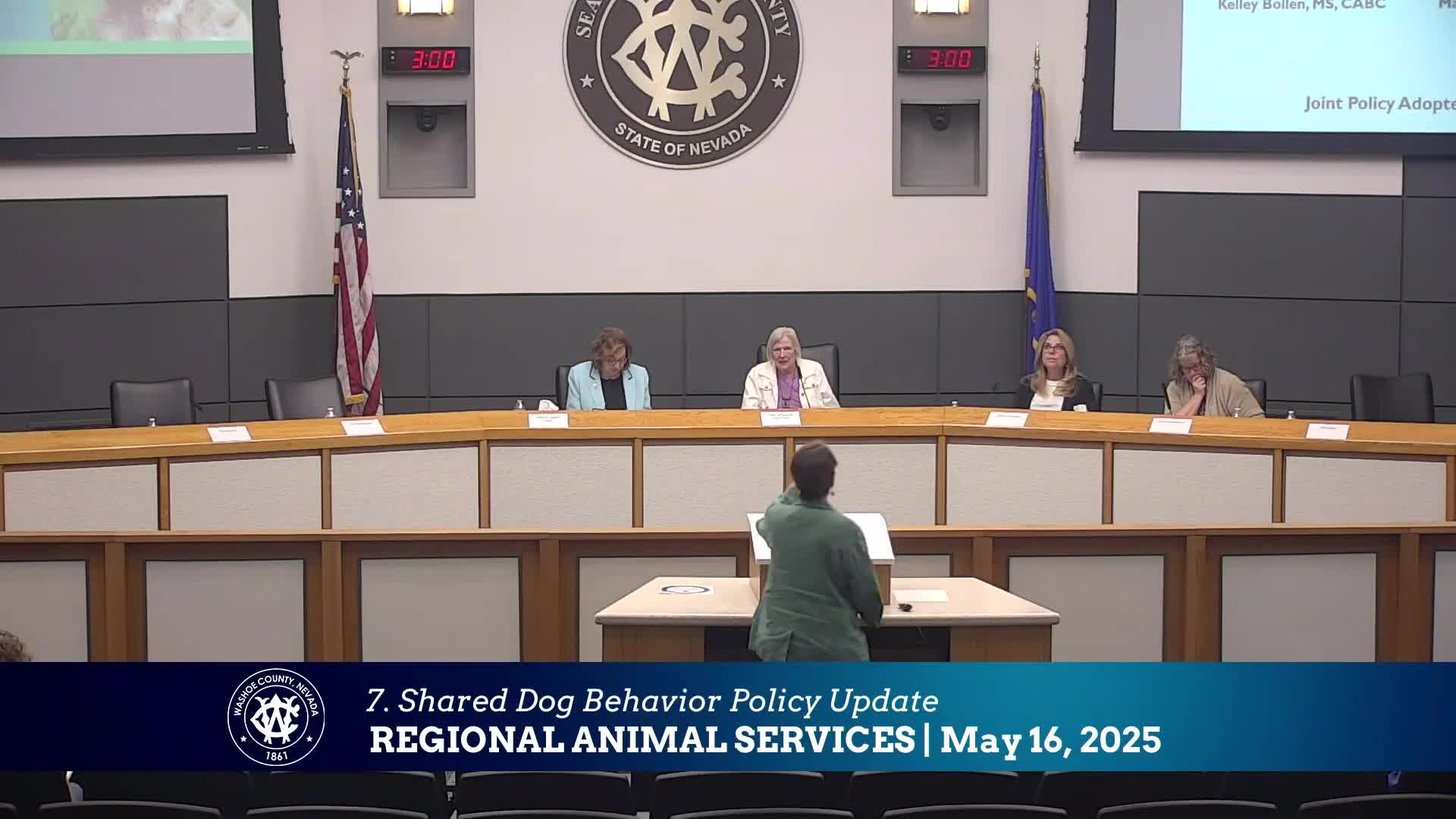
Washoe County, Nevada Humane Society adopt shared protocol to keep dangerous dogs out of the community
